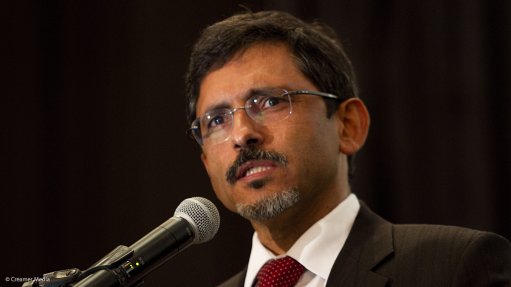
Economic Development Minister Ebrahim Patel
Photo by: Duane Daws
A shift in investment towards South Africa’s ambitious long-term infrastructure strategy should be put under the spotlight at the Asisa Conference, Economic Development Minister Ebrahim Patel told delegates at the Sandton Convention Centre on Tuesday.
“This could result in a new sustainable growth path for the country,” he said. “There needs to be a consensus that large infrastructure programmes will benefit South Africa and that it will be a catalyst for the economy.”
Asisa (Association for Savings and Investment South Africa), has brought together the country’s top business minds in the investment and savings industry, from Investec to Sanlam, to a conference aptly titled The Tipping Point.
“The last five years saw the biggest investment in infrastructure since the 1960s,” he said. “Some of these projects are eye catching, … but others are less visible like the upgrades to roads and introduction of water and electricity in rural parts of South Africa.
“We have some long-term infrastructure projects in the pipeline and we are now converting them into bankable projects,” he said, adding that the project pipeline would cost R4.7trn.
Invest in infrastructure
Enoch Godongwana, the ANC Economic Transformation Cluster Head, said the summit should find ways to turn investment towards these projects.
“This summit will focus on equities and bonds, but is there scope in other asset classes to generate growth, like infrastructure,” he asked delegates.
“We need an extra R4-billion to grow the economy,” he said. “The NDP [National Development Plan] says that for growth we need 30% of GDP investment. We are far below that.”
We’ve learnt from our mistakes
Patel said government had learnt from past mistakes, like with the Eskom new build programme.
“We need to learn from experience, simplify the number of contracts and identify what risks private sector should shoulder,” he said.
“Medupi has 32 large contractors running simultaneously and they impact on one another,” he said.
“We’ve learnt that projects that are rushed will cause more delays and result in higher costs down the road, which the new build programme shows,” he said.
“One of the key contributors to high costs was collusion and price fixing by large construction companies,” he said.
He said new infrastructure projects were seeing more synergies. “There are 18 strategic integrated projects to synchronise time frames and speed up planning,” he said.